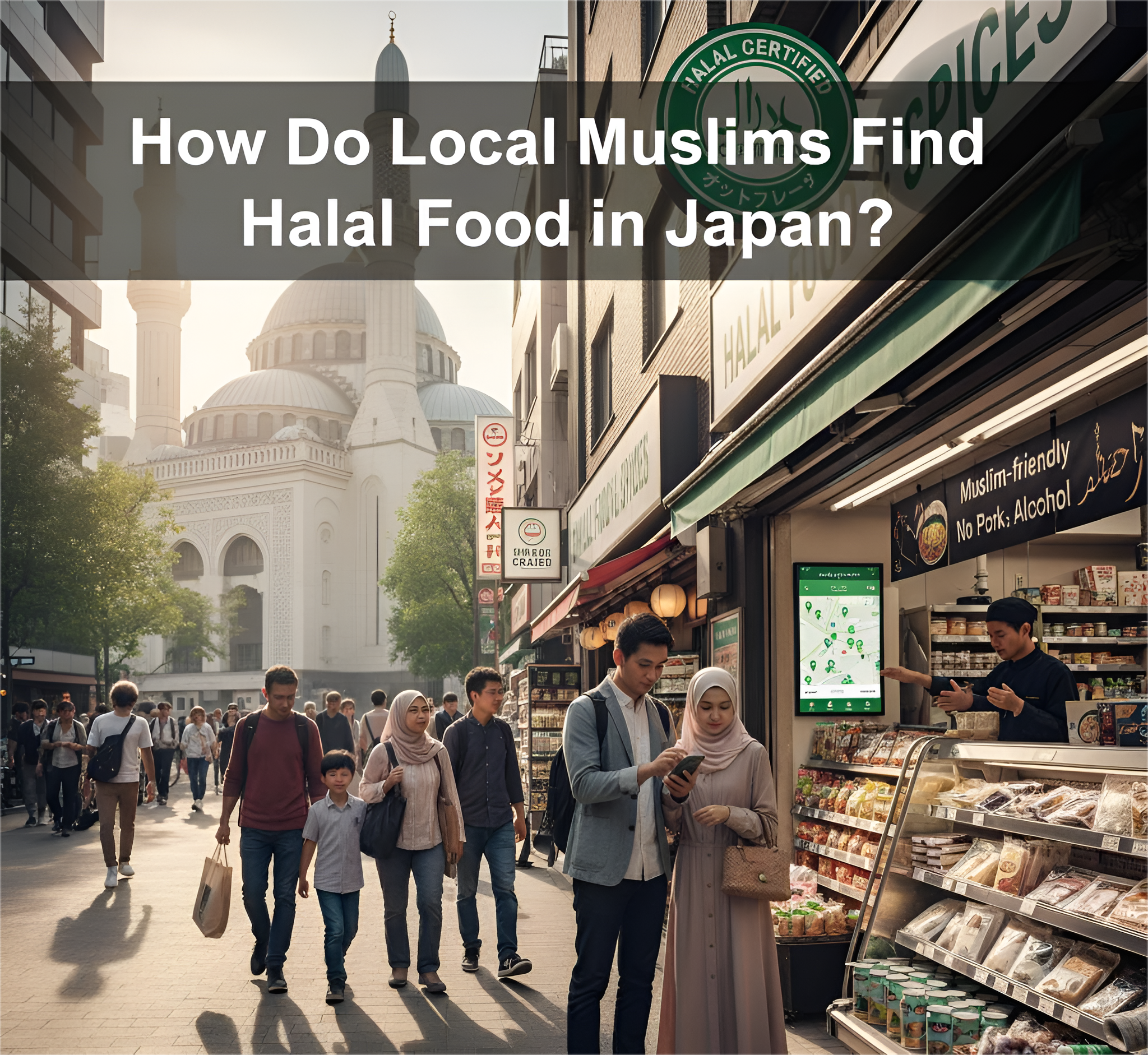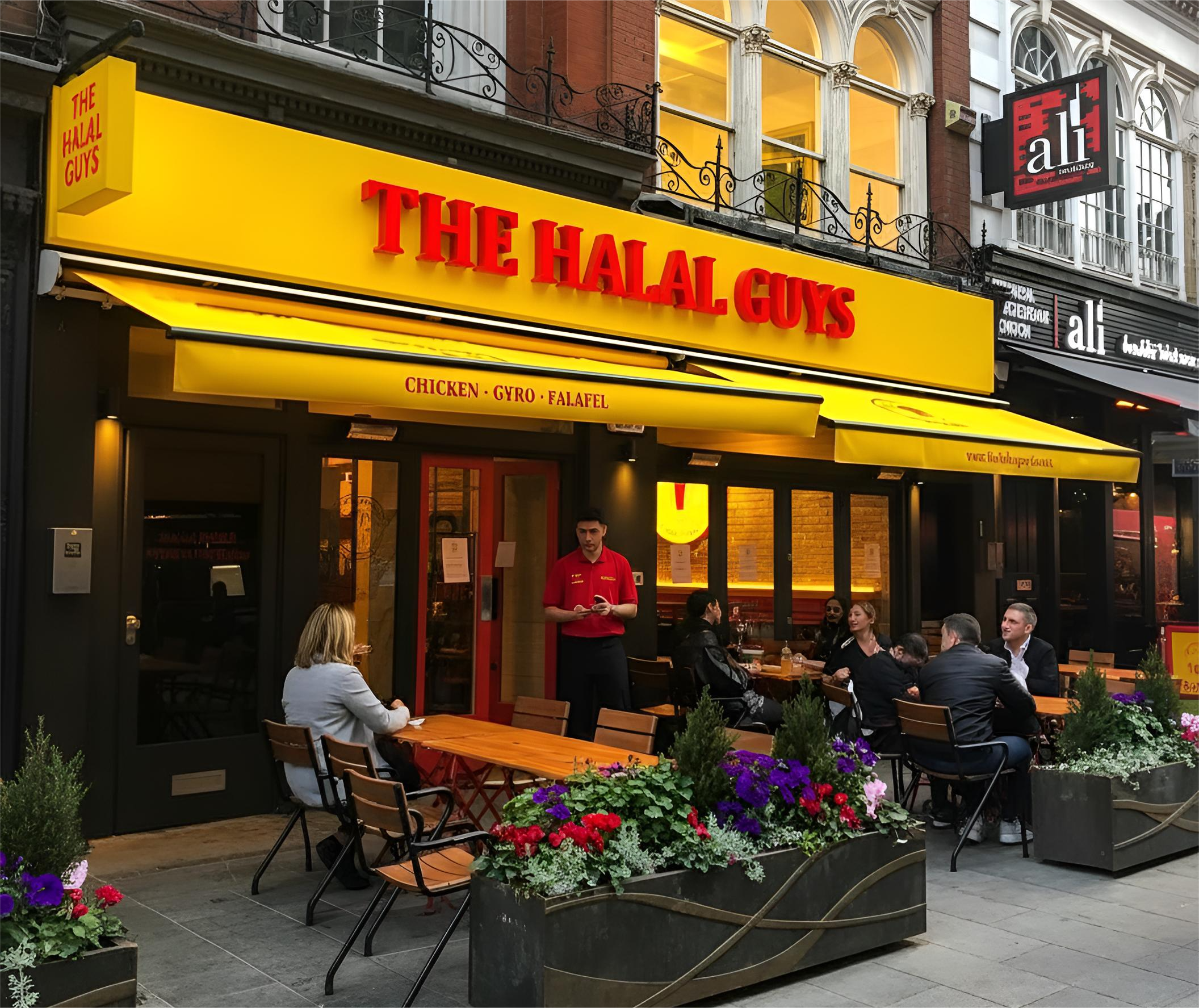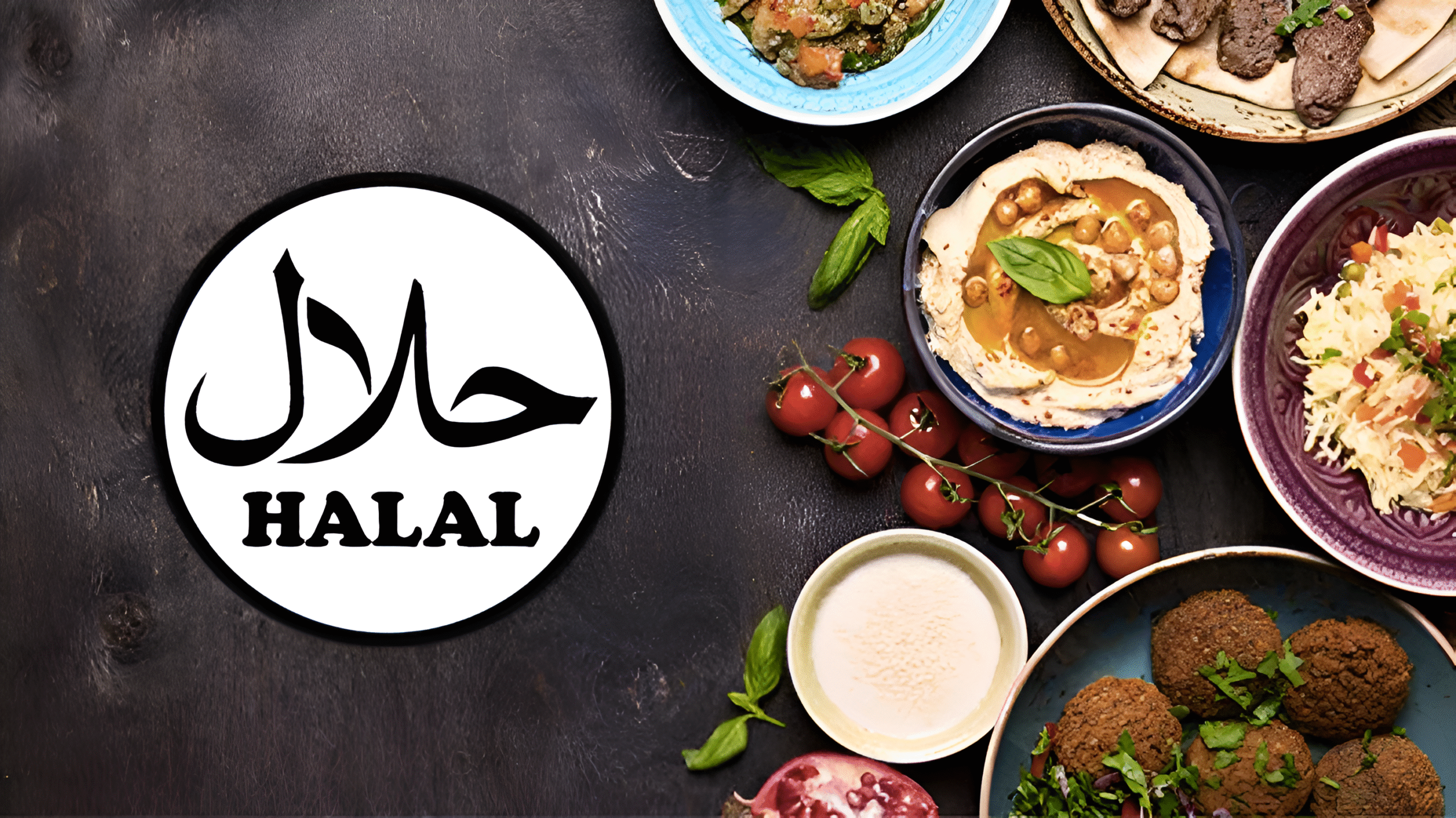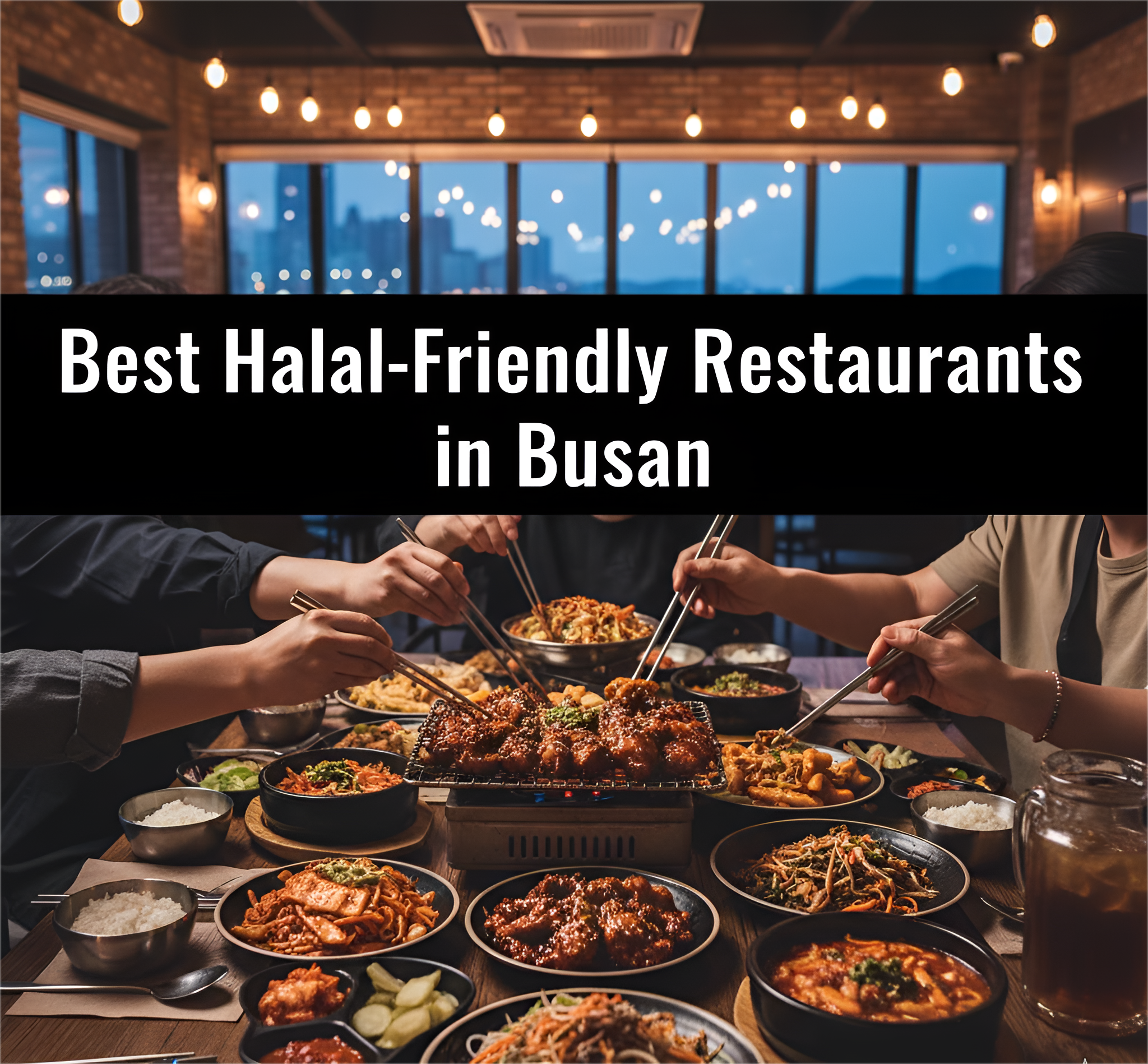How Do Local Muslims Find Halal Food in Japan?

How Local Muslims Find Halal Food in Japan
Japan is not a Muslim country, and therefore food has traditionally been short on halal. In the last decade or so, with growing tourism, immigration, and awareness, the halal market has been developing. It has implications for local Muslims (students, workers, families) of opportunities on the one hand and continuing challenges on the other. What follows is how they cope with eating halal, what facilities are to be found, what dangers to avoid, and how it is changing.
The Context: Why It’s Hard & What’s Changing
- Small Muslim population, low baseline awareness
Since Muslims form a minority in Japan, most restaurants, food manufacturers, and stores do not know about the “halal” (what it entails in detail: no pork or pork products, no non-permitted alcohol, slaughtering of meat properly etc.). What it means is that unless the establishment is clearly halal or “Muslim-friendly”, there’s usually doubt. - Hidden ingredients
Most Japanese food or sauces contain ingredients which are not clearly non-halal, e.g., mirin (sweet rice wine), sake sauces, dashi with bonito or other non-halal fish or fish products, and animal fat. Even some miso pastes or vinegars might have used or processed using alcohol. Therefore, reading labels, inquiring from staff, and double-checking certification matters. - Rarity outside big cities
In Tokyo, Osaka, Kyoto, Fukuoka and other larger or more touristy cities, halal- or Muslim-friendly restaurants, shops, mosques/prayer rooms are increasingly prevalent. But in rural prefectures, small towns, or in out-of-the-way places, like it or not, options are scarce. The distance, transport, and little availability of halal meat or halal-certified products make it difficult. - Growing demand and growing infrastructure
Due to Muslim-majority country visitors, and also foreign residents more and more, there have been increases in halal certification organizations in Japan, halal food stores, apps and guidebooks, and restaurants modifying menus. More hotels now provide halal menus, prayer rooms, “Muslim-friendly” facilities.
Strategies Local Muslims Use to Find Halal Food
Here are the primary strategies that locals utilize: combining digital tools, community networks, mindful reading/talking, and compromise at times.
1. Digital Tools: Apps, Websites, Maps
- Halal Gourmet Japan: An online database of halal restaurants. Locals use it to find halal/eateries certified or at least Muslim-friendly.
- Halal Navi: Used to search for halal restaurants, read reviews, look at what kind of halal-friendliness is provided.
- Halal Japan app: Assists in recognizing halal products (foodstuffs, snacks) through barcode scanning or by searching registered data. Suitable for routine shopping.
- Other apps/guides: HappyCow (vegetarian/vegan but frequently useful since much vegetarian cuisine is halal or nearly halal), Google Maps user reviews, Social Media accounts (Instagram, Facebook groups) for halal food in Japan.
2. Certification & Halal Marks
- There exist Japanese halal certification organizations , which certify restaurants, hotels, convenience stores, etc. Looking for the halal logo/certificate is one straightforward way to believe something is halal.
- Restaurants might not be fully halal certified but be labeled “Muslim-friendly.” That could mean no pork or alcohol, separate utensils, etc. It’s worth asking which aspects live up to one’s own personal halal expectation.
3. Reading Labels, Checking Ingredients
- As most packaged foods, snacks or “konbini” (convenience store) products might not be certified, local Muslims will end up getting used to Japanese ingredient labels. Knowing some key words in Japanese (e.g. “mirin”, “sake”, “豚 (buta: pork)”, etc.), or having translation apps comes to the rescue.
- And, scanning barcodes using tools/apps such as Halal Japan to check if a product is well-known and safe.
4. Community / Word-of-Mouth
- Getting recommendations from other Muslims (at mosque, university, workplace) is highly common. Exchanging lists of trustworthy halal restaurants, shops. Word of mouth sometimes more trustworthy than merely what’s advertised.
- Muslim associations or centers can keep lists or create guides. Tourist information centers in some cities also assist.
5. Staying in Areas with More Resources
- Locals tend to live, dine, or at least approach areas with more halal or Muslim-friendly facilities. In Tokyo, some places such as Okubo / Shin-Okubo, Asakusa, Ueno, Shinjuku etc. are reputed to have more halal food, halal grocery stores, etc.
- Also around mosques/prayer rooms, as businesses concentrate where demand is. If you see where there is a mosque, surrounding restaurants have more chances of knowing about halal or Muslim-friendly practices.
6. Cooking at Home, Preparing Own Food
- Several local Muslims who live long-term purchase halal meat from special shops or import through halal online stores, then prepare at home. Availability of kitchen facilities (home, shared apartment, hotel with kitchenette) provides flexibility.
- Keeping minimal spices, halal sauces, etc., such that one can improvise or prepare Japanese-style meals (such as vegetable tempura, udon, soba, etc.) that do not include alcohol & non-halal meat.
7. Communicating with Restaurants
- Asking the staff: either Japanese or through English (or through translation tools) if a certain dish has pork in it, is made with alcohol, or is fried in a shared fryer, etc. Most Japanese restaurants are extremely courteous and willing to attempt to accommodate or at least inform you on what they use. Rural areas particularly, locals might not be accustomed to providing halal certification, but usually eager to explain if asked.
- Keeping key words at hand: e.g. “no pork,” “no alcohol,” “separate utensils,” etc., in Japanese.
What Tools & Services Assist
- Halal Gourmet Japan & Halal Navi — to find halal or Muslim-friendly restaurants.
- Halal Japan app — particularly to find halal items at supermarkets / convenience stores.
- JMA Halal (certification body) — for a reference source of which establishments are certified.
- Guides made by Japanese National Tourism Organization (JNTO), by local Muslim community organizations.
- Social media and internet forums (Facebook, Reddit etc.) where individuals write recent experiences. Helpful because sometimes restaurants change menus, ingredients, or close/open.
What to Watch Out For: Pitfalls & Things to Double-Check
- “Muslim-friendly” vs “certified halal”: Just because a restaurant has labeled itself as Muslim-friendly doesn’t necessarily mean that it’s completely halal. It could avoid pork but still include alcohol in sauces or cross-contaminate. If you need strict compliance, certification is important.
- Alcohol hidden in cooking: Japanese food employs lots of sauces, vinegars, broths that might contain cooking sake, mirin, or other types of alcohol. Also seasonings, sweets might have gelatin or animal-based emulsifiers.
- Cross-contamination: Common utensils, common frying oil, etc., can be a problem. Even if the meat is halal, cooking matters.
- Inconsistent labeling: Halal foods are sometimes imported and labeled, but ingredients can be altered secretly. Some “halal” signs are also less prominent or less stringently applied. Looking for well-known certification bodies makes the difference.
- Price and availability: Halal meat or halal-approved restaurants are generally higher priced than non-halal restaurants, considering import costs, smaller size, certification fees. Furthermore, in a few regions of Japan access to halal meat is physically constrained.
- Fewer choices outside main urban areas: Day-to-day shopping in small towns can provide few or no halal meat options, fewer international or halal specialty stores.
Examples / Case Stories
To put it into better perspective, here are some actual examples of how local Muslims or Muslim tourists have done so.
- In Tokyo, Okubo / Shin-Okubo neighborhoods are famous for having specialty halal shops (meats, spices, international stores). For instance, Shinjuku Halal Food, Nasco Halal Food, Toko Indonesia etc.
- AndHere Hotels in Ueno has a store “Ayamuya Shin-Okachimachi” which is certified halal and also provides a prayer space, combining food and prayer needs.
- A local custom: when rural visits are made, local Muslims occasionally dine at more traditional Japanese restaurants (udon, soba, tempura), and request the staff if they can make a version without known non-halal ingredients. Occasionally that is acceptable.
Emerging Trends
- More halal certification efforts: Restaurants are seeking the halal certificate as they recognize the business prospects with Muslim visitors or residents. Organizations such as JMA (Japan Halal) are striving to increase certifications, usually for low charges in some areas.
- More Muslim-friendly hotels: Hotels providing halal menus, prayer mats, even Qibla direction in rooms. For extended stay residents or students, this is important.
- Greater halal products in large supermarkets and convenience stores, although in many cases only to big cities. Expansion of imported halal meat, sauces, snacks assists. Online shopping assists as well.
- Technology: barcode scanners, apps, mapping tools, translation tools are more and more utilized to facilitate everyday decisions.
Practical Tips & What Converts to “Best Practices”
For a Muslim local in Japan (or residing for a long while), following are practices that ensure halal eating is manageable and not stressful.
| Tip | Description |
|---|---|
| Learn key Japanese food terms | Words like buta (豚 = pork), niku (meat), mirin, sake, bonito, dashi, etc. If you can recognize or ask about them, it helps. |
| Carry a small phrase/guide card | E.g. “この料理には豚肉が入っていますか?” (“Does this dish contain pork?”), “お酒は使われていますか?” (“Is alcohol used?”), etc. A translated list of forbidden ingredients. |
| Scan product labels or barcodes | Use tools or apps (Halal Japan etc.) especially for snacks, packaged foods. If in doubt, avoid. |
| Identify shops with halal corners | Some large supermarkets (e.g. Gyomu Super, AEON, etc.) and international grocery stores have halal sections. Frequent those. |
| Plan your meals / carry backups | Having some halal-snacks in your bag especially when traveling away from big cities helps. Also, know alternatives in the area. |
| Build a network | Connect with Muslim groups, friends, community centers; share tips, places, new restaurant openings. Local knowledge is invaluable. |
| Use technology | Save favorite halal restaurants on map apps, get the latest updates (opening hours, menu changes), use apps that filter by halal, use “Halal Lens” features etc. |
| Inspect kitchens or ask about cross-contamination where relevant | If eating in places that are not fully halal certified, ask about how meat is cooked, whether same oil/fryer is used, if utensils are shared. |
| Budget for premium costs | Expect halal certified food or imported meats to cost more; plan accordingly. |
What Someone Moving Permanently or Staying Long-Term Should Do
If one is moving to Japan (for study, work, family), following are extra steps one can take to more conveniently integrate halal food into daily life.
- Find halal grocery stores in your city
Plot where halal meat, poultry, spices, sauces are available. Even though it’s a little way off, having these known allows you to purchase in bulk. Many web stores might cater to some prefectures. - Establish local cooking routines
Acquire basic halal essentials (rice, veggies, halal meat, etc.) and learn how to prepare local Japanese cuisine in halal forms. That way reliance on halal restaurants is reduced, providing more flexibility. - Check apartment / kitchen facilities
If possible, stay in an apartment or shared kitchen. This aids cooking personal food, which may be required for many meals. - Stay updated on certification and regulation
As halal standards, certifications, and what is “halal” vs “Muslim-friendly” can change, staying up to date through community groups, apps, local government assists. Certifications or restaurants can also lose/gain status. - Advocate / help inform
Locals who work in restaurants or shops can simply be uninformed at times. Requesting politely, exchanging information, or assisting restaurants that do halal correctly can assist with the entire ecosystem expanding. - Look at importing or purchasing from abroad Certain staples may not be found locally; importing (where legal and practical) or purchasing online international halal items may be necessary.
How the Japanese Government and Businesses Are Adapting
- The Japanese National Tourism Organization (JNTO) has created guidelines and material for Muslim-friendly travel, such as halal food, prayer facilities etc.
- There is a rise in the number of halal certifications being received, ranging from high-profile restaurants or even temples or ryokan with vegetarian/halal menus. Example: Origami Asakusa in Tokyo received halal menu & certification.
- Convenience stores now sell halal-certified snacks, and supermarkets in large cities have “halal corners.”
- Increasingly, hotels are offering “Muslim-friendly” facilities: prayer mats, room Qibla direction, etc., staff training or guides for non-Japanese speakers.
How Tourists / Short-Term Visitors and Local Residents Are Different in Their Approach
- Tourists tend to rely significantly on guides, apps, pre-preserved lists of halal restaurants. They might eat out more frequently, count less on cooking for themselves. They have to make sure destinations have nearby halal food or carry snacks.
- Locals / long-time residents have a greater motivation to go out and discover, establish routines, invest time to identify reliable sources, cook at home, discover regular halal shops, etc.
Conclusion
Finding halal food is a combination of challenge and opportunity for Muslims who live in or relocate to Japan. Things are getting better—more certifications, more restaurants that are halal-friendly, more tools—but there is still work to be done. But by utilizing:
- digital tools (apps, maps, barcode scanners)
- community networks and knowledge
- reading labels and picking up important Japanese food-language
- deciding where you live or eat based on what is available
- being proactive about asking, cooking, taking snacks
The situation becomes manageable and more comfortable.
As continuing growth occurs, local Muslims are assisting in creating a stronger halal ecosystem. If you’re thinking about moving there (or are already there), most of the challenges can be overcome.
For more like this visit: Hilalinfohub



Post Comment